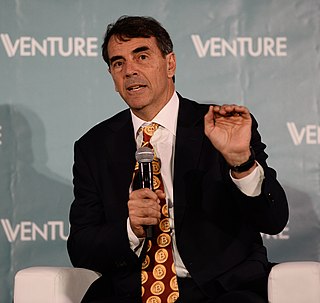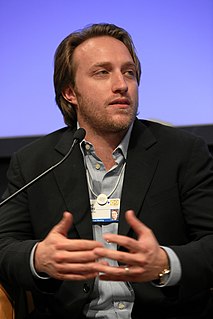A Quote by Timothy C. Draper
The research that Noam Wasserman has assembled here can help entrepreneurial companies who want to prepare well for their future. The Founder's Dilemmas is a must-read for anyone thinking about starting a business.
Related Quotes
Every entrepreneur faces trade-offs when founding and growing their company. As we discovered at YouTube, those early decisions have far-reaching impacts and lead to unforeseen pitfalls down the road. Noam Wasserman uses vivid anecdotes and deep research to expertly outline the key early choices that define a startup, making The Founder's Dilemmas an invaluable alternative to real-world trial and error.
It’s not about having a Silicon Valley attitude—it’s about having an entrepreneurial attitude. It’s about partnering with other organizations in and around your area. It’s about thinking big with entrepreneurs that sit next to you in your coworking space. It’s about collaborating with tech gurus, social media wizards and community leaders at cool business events. It’s the people that make a community an entrepreneurial one—not the location—and it’s up to you to contribute.
You can be entrepreneurial even if you don’t want to be in business. You can be a social entrepreneur focused on the not-for-profit sector. You can be an agriculture entrepreneur if you want to change how people think about farming. You can be a policy entrepreneur if you want to go into government. The idea of an entrepreneur is really thinking out of the box and taking risks and stepping up to major challenges.
I always think it's best to pretend you're in a tenuous position. Just as a player, you always want to stay in the now and work hard but also have goals for the future. There's no promises in any entrepreneurial business. You have to really work hard every year and also try to envision where you want to go in the future at the same time.


































